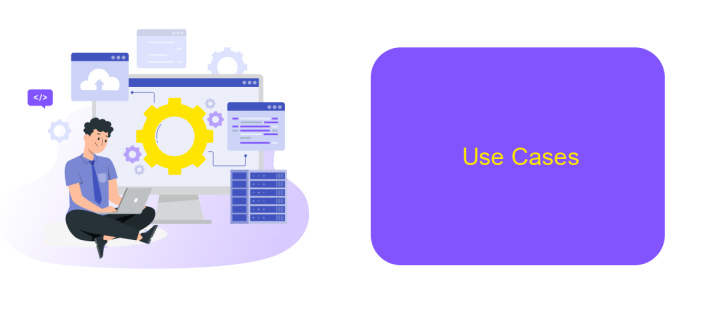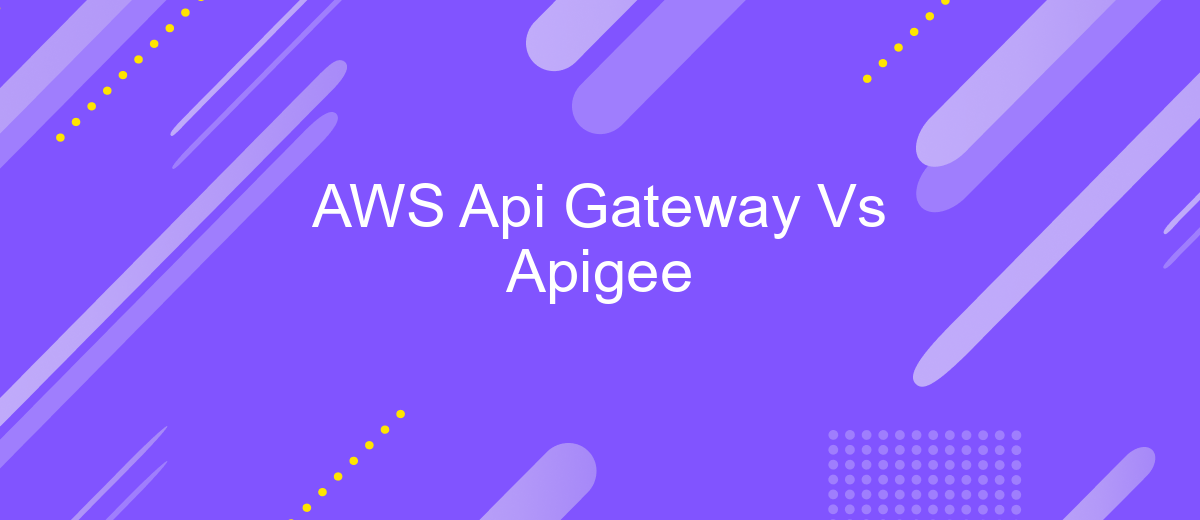AWS Api Gateway Vs Apigee
Choosing the right API management tool is crucial for modern businesses aiming to streamline their operations and enhance their digital services. AWS API Gateway and Apigee are two leading solutions in this space, each offering unique features and capabilities. This article will delve into a comparative analysis of AWS API Gateway vs. Apigee, helping you make an informed decision for your enterprise needs.
Introduction
In today's rapidly evolving digital landscape, effective API management is crucial for businesses looking to streamline their operations and enhance their service offerings. AWS API Gateway and Apigee are two prominent tools that offer robust solutions for managing APIs, each with its unique features and capabilities.
- AWS API Gateway: A managed service by Amazon Web Services that allows developers to create, publish, maintain, monitor, and secure APIs at any scale.
- Apigee: A full lifecycle API management platform by Google Cloud, designed to help businesses design, secure, deploy, monitor, and scale APIs.
Choosing the right API management tool can be a daunting task, as it involves evaluating various factors such as scalability, ease of use, security, and cost. Additionally, services like ApiX-Drive can further simplify the integration process by offering seamless connectivity between different applications, making it easier for businesses to automate workflows and enhance productivity.
Feature Comparison

When comparing AWS API Gateway and Apigee, one of the primary distinctions lies in their integration capabilities and ease of use. AWS API Gateway offers seamless integration with other AWS services, making it an excellent choice for developers already invested in the AWS ecosystem. It provides robust features for managing and securing APIs, including throttling, monitoring, and versioning. On the other hand, Apigee, a Google Cloud product, excels in providing a user-friendly interface and extensive analytics capabilities, making it easier for teams to manage API lifecycle and gain insights into API performance.
Both platforms offer powerful tools for API management, but their strengths cater to different needs. AWS API Gateway is ideal for those seeking deep integration with AWS services, while Apigee shines in environments where user experience and detailed analytics are paramount. Additionally, for businesses needing to streamline integration processes, services like ApiX-Drive can be invaluable. ApiX-Drive simplifies the connection between various applications and APIs, enhancing the efficiency of both AWS API Gateway and Apigee by automating data transfer and reducing manual workload.
Advantages and Disadvantages

When comparing AWS API Gateway and Apigee, both have their unique advantages and disadvantages that cater to different needs and use cases. AWS API Gateway is highly integrated with other AWS services, providing seamless scalability and robust security features. On the other hand, Apigee offers advanced API management capabilities, including analytics, monetization, and developer portal functionalities.
- AWS API Gateway:
- Advantages: Seamless AWS integration, cost-effective for small to medium workloads, strong security features.
- Disadvantages: Limited advanced API management features, can become expensive at scale.
- Apigee:
- Advantages: Comprehensive API management, advanced analytics, and monetization options.
- Disadvantages: Higher cost, complexity in setup and management.
For businesses looking to streamline their API integrations, services like ApiX-Drive can be highly beneficial. ApiX-Drive simplifies the process of connecting and automating workflows between different APIs, enhancing operational efficiency. Depending on your specific requirements, choosing between AWS API Gateway and Apigee, supplemented by integration tools like ApiX-Drive, can significantly impact your API strategy's success.
Use Cases

When deciding between AWS API Gateway and Apigee, it's essential to consider specific use cases to determine which service best fits your needs. AWS API Gateway is a robust solution for developers looking to create, publish, maintain, monitor, and secure APIs at any scale. It is particularly well-suited for applications hosted on AWS, providing seamless integration with other AWS services.
On the other hand, Apigee is designed for enterprises that require advanced API management capabilities, including analytics, security, and monetization. It is an excellent choice for businesses that need to manage APIs across multiple cloud environments and on-premises systems.
- Microservices architecture: AWS API Gateway can efficiently handle microservices by routing requests to appropriate endpoints.
- Enterprise API management: Apigee excels in providing comprehensive tools for managing the entire API lifecycle.
- Hybrid cloud environments: Apigee supports multi-cloud and on-premises deployments, offering flexibility for complex infrastructures.
- Integration with third-party services: Tools like ApiX-Drive can complement both AWS API Gateway and Apigee by simplifying the process of connecting various applications and automating workflows.
Ultimately, the choice between AWS API Gateway and Apigee depends on your specific requirements, including the scale of your operations, the complexity of your infrastructure, and your need for advanced API management features. Consider your long-term goals and the environments where your applications will run to make an informed decision.
Choosing the Right Solution
When choosing between AWS API Gateway and Apigee, it's crucial to consider your specific needs and the scale of your operations. AWS API Gateway is an excellent choice for organizations already leveraging other AWS services, as it seamlessly integrates with the AWS ecosystem. It offers robust security features, scalability, and cost-effectiveness, especially for small to medium-sized enterprises that need a reliable API management solution without extensive customization. Additionally, AWS API Gateway's pay-as-you-go pricing model can be beneficial for startups and growing businesses.
On the other hand, Apigee, a Google Cloud product, excels in providing advanced API analytics, developer portal capabilities, and monetization features. It's well-suited for larger enterprises requiring in-depth insights and extensive API management capabilities. If your organization needs to manage complex API ecosystems with advanced traffic management and detailed analytics, Apigee is the better choice. For those looking to streamline their API integrations, services like ApiX-Drive can further enhance your API management by simplifying the integration process and automating workflows, making it easier to connect various applications and services efficiently.


FAQ
What are the primary differences between AWS API Gateway and Apigee?
Which service is better for small to medium-sized businesses?
How do both services handle security?
Can I use these services to automate workflows and integrations?
What are the costs associated with each service?
Time is the most valuable resource for business today. Almost half of it is wasted on routine tasks. Your employees are constantly forced to perform monotonous tasks that are difficult to classify as important and specialized. You can leave everything as it is by hiring additional employees, or you can automate most of the business processes using the ApiX-Drive online connector to get rid of unnecessary time and money expenses once and for all. The choice is yours!

